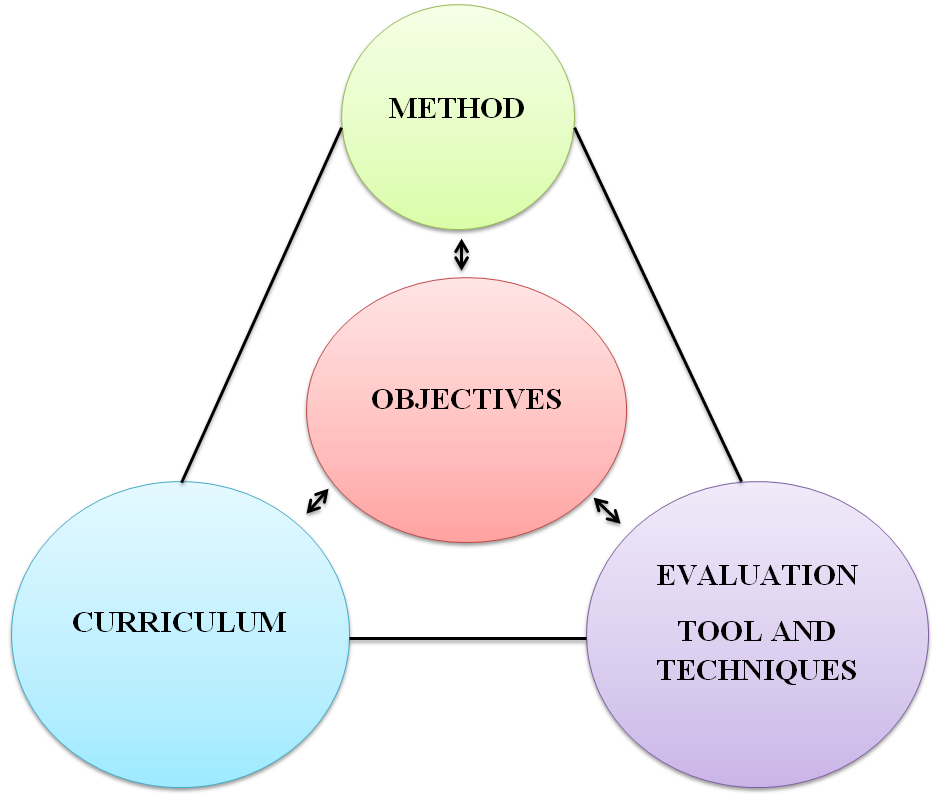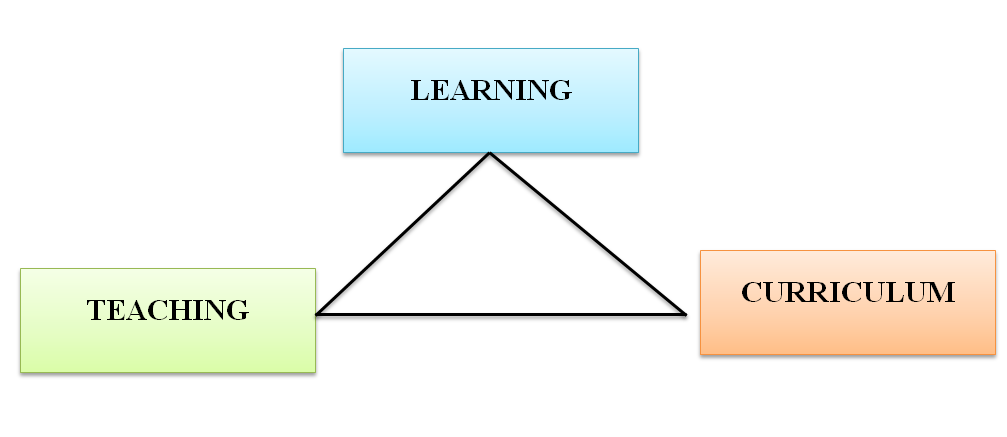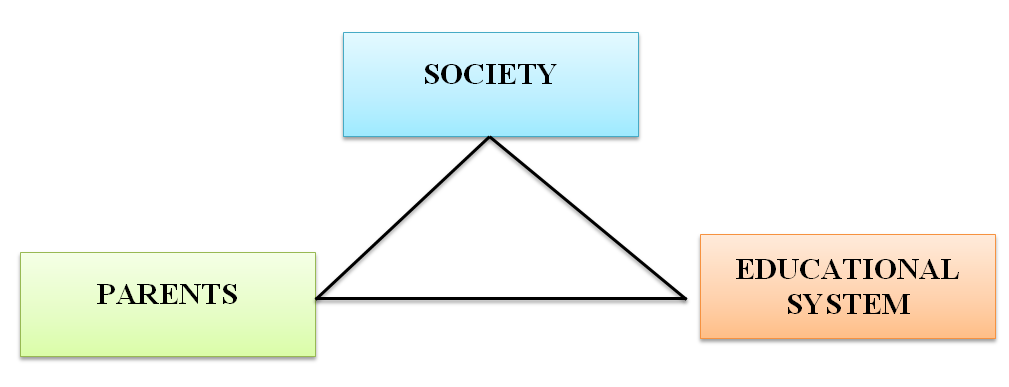Evaluation System
Teaching has been defined as the process of facilitating learning, and learning is broadly defined as the process of acquiring knowledge, attitude, skills, habits and abilities. To determine whether teaching has facilitated learning, evaluation s carried out. Therefore, evaluation is a systematic process which involves the use of different types of activities for assessing the outcomes of teaching. Evaluation is a continuous appraisal of the achievement of the aims of education as well as the methods of teaching and learning with a view to continuous improvement so that education becomes dynamic and self-developing. It also involves the self-appraisal by the student of their success and failures from time to time.
In other words, teaching, learning and evaluation are the three inter-dependent aspects of the educative process.
Definitions
According to Quillen and Hana
Evaluation is the process of gathering and interpreting evidence on changes in the behavior of the students as the progress through school.
According to Kothari Commission
Evaluation is a continuous process. It forms an integral part of the total system of education, and is intimately related to educational objectives. It exercises a great influence of the pupil’s study habits and the teacher’s methods of instruction and thus helps not only to measure educational achievement but also to improve it. The techniques of evaluation are means of collection evidence about the student’s development in desirable directions.
According to Tuck Man
Evaluation is a process where in the parts, process or outcomes of the programme are examined to see whether they are satisfactory, particularly with reference to the programs stated objectives of our own standards of excellence.
According to Maffatt
Evaluation is a continuous process and is concerned with more than the formal academic achievement of the students. It is interested in the development of the individual in terms of the desirable behavioural changes in relation to his feelings and actions.
According to Shane and McSwam
Evaluation is a process or inquiry based upon criteria cooperatively prepared and concerned with the study, interpretation and guidance of socially desirable changes in the developmental behaviour of children. It is a process within the child as a result of which he responds to the psychological interpretations he makes of his school-community environment.
According to Good
Evaluation is a process of ascertaining or judging the value or amount of something by careful appraisal. ‘values’ imply the outcome of the learning activity whereas ‘amount’ signifies the acquisition of knowledge of skill. It means that evaluation concerns itself with scholastic achievement as well as with behaviour changes.
According to M. Briggs and Joseph Justman
Evaluation is a process by which the values of an enterprise are ascertained. Evaluation should be conceived primarily in terms of educational purposes which the programme of supervision is intended to serve.
According to Beeby
Evaluation is the systematic collection and interpretation of evidence leading as a part of process to a judgement of value with a view to action .
Features of Evaluation
1. Comprehensiveness
It must try to assess all aspects of a child’s development. Thus, different techniques might be used by the teachers to evaluate the performance of the child.
2. Continuous
Evaluation is a continuous process as education. It is not just an examination but a part of the evaluation process. There is no fixed time limit for the completion of evaluation work, but it is continuous process.
3. Systematic
Evaluation is a systematic process. This means it is carried out in a systematic and planned way.
Elements of Evaluation
1. Evaluator and participants
The most important elements of an evaluation are the person who will evaluate and the person or persons who will be evaluated. In the absence of one, there will be no purpose of evaluation.
2. Purpose and objective of evaluation
It is a significant element of evaluation. The purpose of evaluation can be admitting students to a course; selecting candidates for a job; routine test to check the progress and understanding of students; or term- end examination for promoting students to a higher class. The teacher can also evaluate students to know whether they understood the content or he needs to change the methodology.
2. Resources
These are required for evaluation of question papers, answer sheets, or online tests. If the skill level of the candidates is to be evaluated, then equipment, hardware, and software will be required accordingly.
3. Analysis
There is a need of analysing the performance of the participants. In case of a written or oral test, marks can be assigned. Candidates can also be given marks or ranked on the basis of their skills, behaviour, attitude, personality, confidence level, etc. such as in interviews.
4. Decision-makers
Decision-makers are persons who will be making the final choice as per the results of the analysis of candidate’s performance.
Scope of Evaluation
The scope and interrelation of evaluation with objectives, methods and curriculum can be shown in the following diagram:

Evaluation procedure should not delimit its scope to only paper and pencil aspect for this may not reveal most of the inherent qualities of the child’s personality and his participation in the day-to-day activities of the school programme. So it is essential to maintain the systematic records of the pupil’s progress in theoretical studies, practical work and the various co-curricular activities which form an integral part of educative process. This will give a true picture of the child’s progress throughout the year and will thus give reliability and validity to the evaluation programme which is based upon the objective of the teaching subject.
Purpose of Evaluation
The purpose of evaluation can be classified into two categories:
1. Educational purpose
The educational purpose of evaluation is basically with Quality Control in relation to :

2. Administrative purpose
The administrative purpose of evaluation is concerned with the accountability to :


